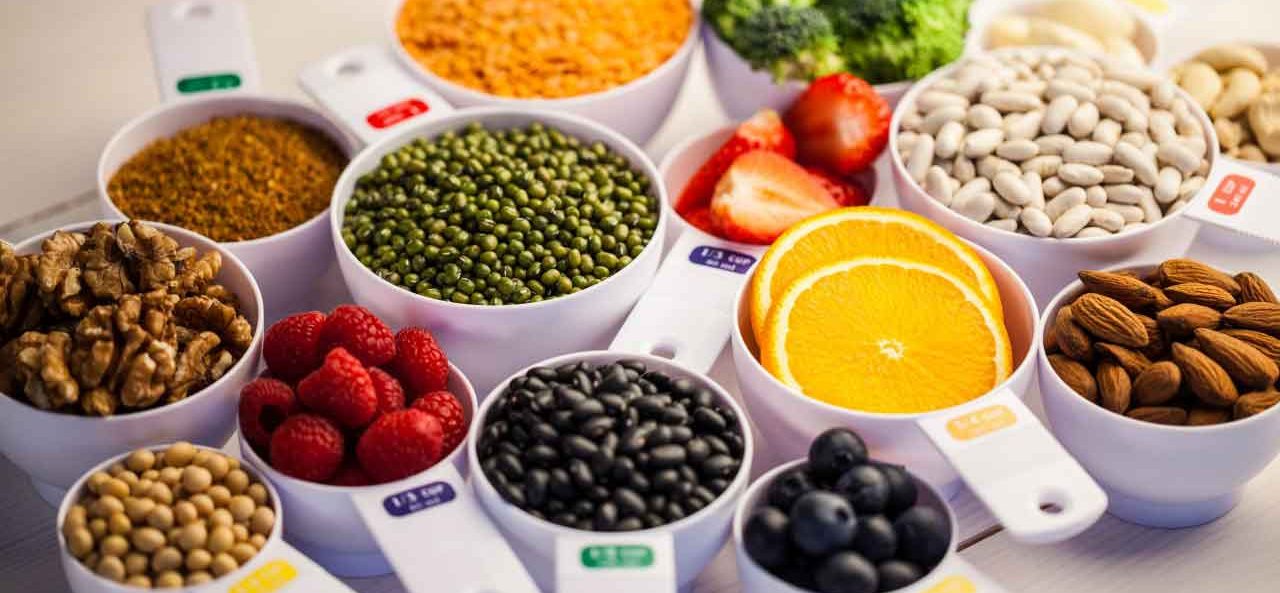13 Foods for Constipation

Fight your constipation naturally with this list of 13 foods to keep you regular. Fill up with these fiber-rich foods daily to keep things moving.
Nobody likes to spend a half hour or more on the porcelain throne (unless you’re playing on your smartphone or reading a magazine or book).
You can find yourself in trouble if you’re stressed out, not eating enough fiber, or drinking too little. Although the old idea that you need eight full glasses of water a day to stay regular isn’t correct, constipation is one sign of dehydration.
YOU MIGHT ALSO LIKE: Relaxation Can Improve Gastrointestinal Symptoms
If you’re drinking enough water, consider constipation a request from your body for more fiber. Most Americans need to double their fiber intake.
Aim for 25 to 30 grams of fiber daily from foods for constipation, rather than supplements. For example, an apple, a half cup of cauliflower, and a cup of beans would come to about 25 grams of foods that make you poop.
The simplest way to ensure that you get enough fiber each morning is an old-fashioned breakfast of muesli, oatmeal mixed with dried fruits, and nuts, adding up to a fiber powerhouse.
Foods for constipation
Here are some foods to increase your fiber intake.
Raspberries
These berries offer 8 grams of fiber a cup. Indulge in them during the summer. You can freeze fresh raspberries to use when they’re not in season (or buy them frozen). Other kinds of berries contain fiber, too. Put berries on top of your muesli.
Nuts
A 1-ounce serving of almonds, pistachios, or pecans provides around 3 grams. Brazil nuts, peanuts, and walnuts have a bit more.
Oranges
Skip orange juice, which is a jolt of sugar without fiber. Instead, eat an orange that could have 2 grams or more of fiber. Naringenin, which occurs in citrus fruits, could have a laxative effect.
Dried fruit
People think of prunes as food for the elderly because older people often suffer more from constipation. The old-fashioned remedy does work; just one little dried prune has a gram of fiber. Prunes also contain sorbitol, a natural laxative. Soak them overnight for the greatest effect.
Dried fruits are more fibrous than fresh ones. For example, a cup of grapes has 1 gram of fiber, and a cup of raisins has seven.
Although adding raisins, prunes, or dried apricots to your cereal supplies fiber along with sweetness, just be aware that you’re eating more sugar, too.
Beans
Beans offer twice as much fiber per cup, from 12 to 18 grams, as most vegetables. As a general rule, think of a half-cup of beans as a regular diet item that provides about a quarter of your daily fiber.
Flaxseed
A tablespoon of ground flaxseed contains 2 grams of fiber and lots of healthy omega-3 fatty acids. Put it in cereal or maybe a smoothie.
Chia seeds are also a good bet.
Whole grains
Stick to whole-grain breads and cereals. Brown rice contains more fiber and vitamins than white varieties.
Spinach
A cup of cooked spinach has 4 grams of fiber as well as a healthy dose of magnesium, which has a laxative effect. Broccoli is also a fiber-rich choice.
Popcorn
Skip butter and salt, flavoring popcorn with a favorite spice instead. A cup of popcorn has about a gram of fiber.
If you ramp up fiber too quickly, you might experience bloating or cramps. Don’t retreat to your old ways; just slow down.
Sweet potatoes
They’re much higher in fiber than a white potato. Eat the skin, too. Other fibrous vegetables include Brussels sprouts, artichokes, and broccoli.
Other good foods for constipation
- Coffee. It stimulates muscle contractions in your large intestine, and has other benefits.
- Yogurt. The probiotics in yogurt can also keep you regular. Look for the “Live and Active Culture” seal and try to avoid sugar. Greek yogurt usually contains more protein and less calcium. Especially if you’ve taken antibiotics or had a stomach flu, consider a probiotic supplement. Look for a mix so you’ll also get the probiotic VSL#3. In one overview study, probiotics — most often Bifidobacterium longum, which you can buy as a supplement — improved constipation by up to 40 percent.
- Other fermented foods. Another way to maintain a good balance of microbes in your gut is to eat a range of traditional fermented foods. Besides yogurt, try kimchi, fresh sauerkraut, kombucha, and kefir.
Updated:
August 30, 2023
Reviewed By:
Janet O’Dell, RN